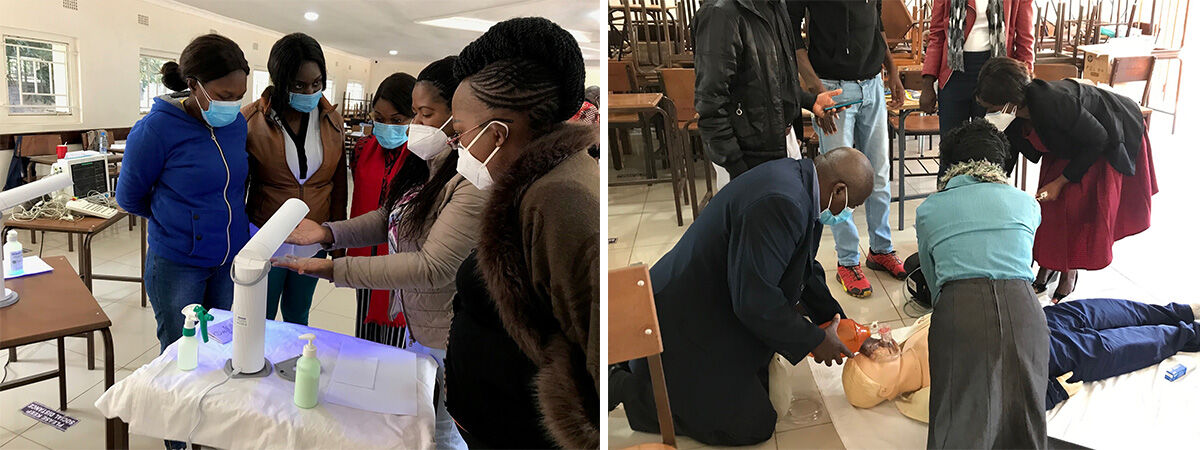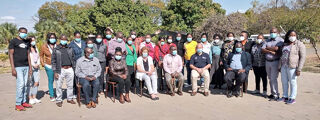As part of the UKRI Newton Covid-19 Rapid Response project a two day training course has been designed for use at different levels of hospital. It covers emergency preparedness, infection prevention and control and nursing care of covid-19 patients, including the delivery of oxygen therapy. The course was not designed to cover critical care, for which, additional modules covering High Flow Nasal Oxygen, Non-Invasive Ventilation and Mechanical ventilation are available.
We have identified that since the start of the pandemic many health partnerships have had to rapidly move to increase virtual remote learning and this has determined how we have moved forward as a partnership in terms of project management and activities. Nevertheless, it is important to point out that there are several critical limitations to this approach for a competence based profession. In consequence, this workshop included the development and delivery of the resources which were locally led and included interactive competency based teaching methods to promote safe nursing care. Resources were adapted from materials developed as part of the Health Worker Action Fund and international best practice.
Project aims:
- To develop a two day practical, interactive workshop for nurses and other healthcare workers directly involved in patient care, in order to improve nursing skills using a low-cost, high sustainable training approach.
- To skill up local nurses to become educators and role models for sustainability.
Who completed the project?
Main UK project team:
- Chris Carter
- Prof Joy Notter
Strategic Partner: Lusaka College of Nursing, Zambian Union of Nursing Organisations & Levy Mwanawasa Medical University.
Main Zambian Project team:
- Dr Priscar Sakala Mukonka
- Mrs Lilian Jere Sitwala
- Mr Chiyengo Mundanya

Who are we funded by?
The project is funded by UKRI Newton Covid-19 Rapid Response.
Final outcome
The workshop was piloted in two hospitals, the first was a small General Hospital with no critical care unit and the second was a Central Hospital with a six-bedded critical care unit. The workshop is now in the process of being cascaded nationally to identified hospitals.
The programme includes pre and post workshop tests and skills-based practical activities to increase confidence and competence in response to Covid-19.
